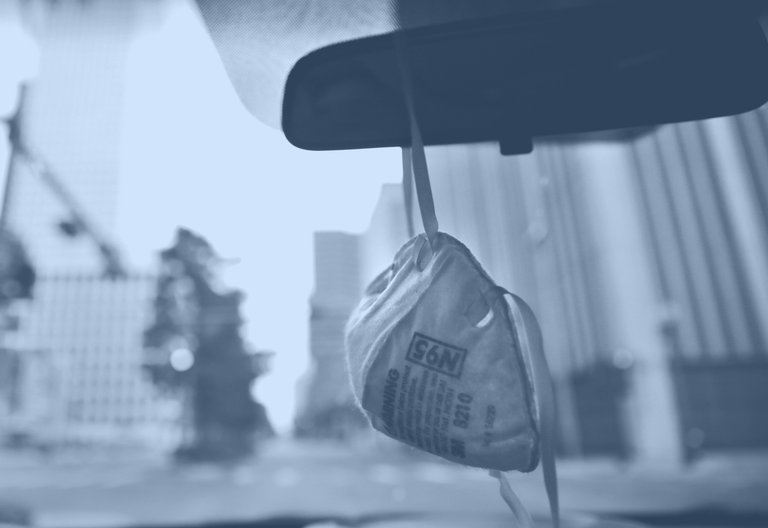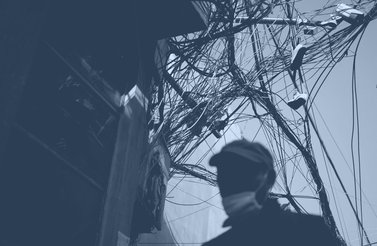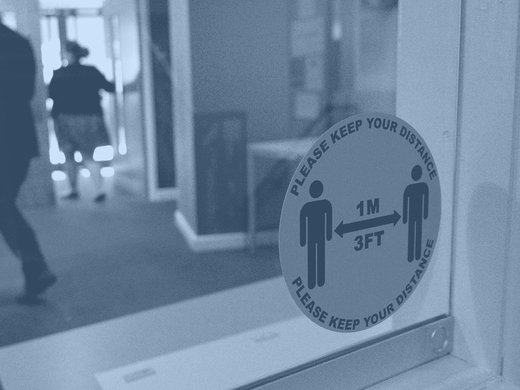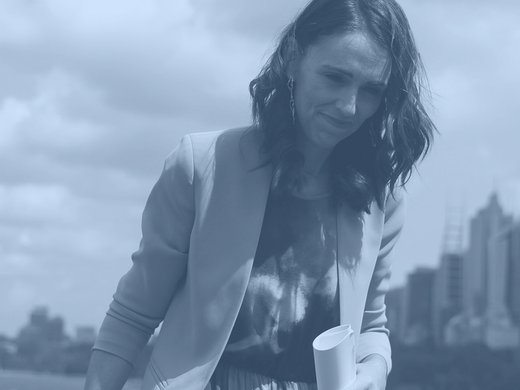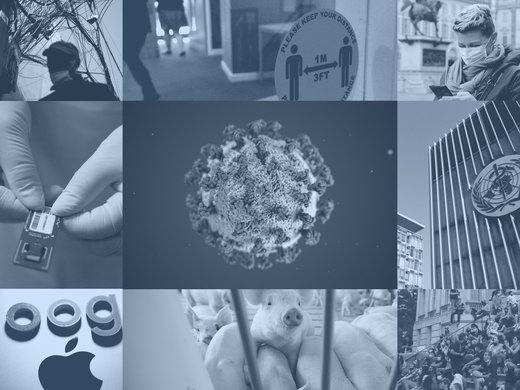ecure your own oxygen mask before assisting others. Anyone who has flown on an airplane will recall the safety demonstration advising them to only help others after they’ve ensured their own flow of oxygen. One might say that the same principle has also applied to managing the response to COVID-19. Governments have scrambled to ensure “oxygen” — literally, in the case of stockpiling ventilators — for their citizens first. This impulse was a reasonable one, albeit hard to reconcile sometimes in the context of an interdependent world.
However, the national race for medicines, surgical masks, gowns and respirators, has awakened nationalist sentiments. As shortages became apparent, governments halted exports to ensure their domestic supply first. Self-sufficiency hard-liners lost no time in milking the me-first rush to argue that imports from China could create “strategic vulnerabilities.” The production of anything that could be deemed critical to national security had to be repatriated.
Goods and services may no longer flow around the globe as they used to. The COVID-19 outbreak laid bare the anarchy of global governance, putting supply chains under assault. In the new trade world “order,” deals may count more than rules, and production of essential inputs may have to be relocated to politically friendly countries, preferably close to the consumption centres.
The war, as it’s been framed, against the COVID-19 virus will not destroy our physical infrastructure, but rebuilding trust will be harder than repairing bridges. Mutual recriminations between the United States and China are exacerbating geopolitical tensions, undermining the minimum of trust required for the effective functioning of the multilateral institutions on which international cooperation rests.
The World Trade Organization can no longer enforce trade rules, and the International Monetary Fund has been incapable of injecting liquidity (special drawing rights), for fear of making life easier for America’s foes. Raw-power politics and inward-looking nationalism may emerge triumphant.
Scapegoating Foreigners and Imports
Governments are buttressing demand with massive economic support, but the effects will only come into play gradually. In rich democracies, millions of people have lost their jobs. They are now depending on welfare support. That money helps, but welfare cheques cannot replace paycheques. Jobs are also our place in society. If furloughed workers face long periods of unemployment, their skills may no longer be in demand. Finding a new “dignified” place in society could be difficult. Middle-class citizens’ frustration could create a favourable climate for the scapegoating of migrants and imports. Nationalistic leaders could find this change in climate useful to their purposes.
In developing countries, large sectors of their populations live in crammed shantytowns. Locking down the economy prevents their citizens from making the daily cash earnings on which they depend. It also compounds the risk of contagions. Governments must face increased health expenditures alongside diminished fiscal resources. Recession in rich countries has halted remittances, lowered demand for exports and depressed commodity prices. And financial investors wasted no time. In just two months, South-North short-term capital outflows accelerated to about $100 billion — a figure three times greater than the outflows for the same period of the global financial crisis in 2008-2009. Simmering social unrest will play into the hands of tyrants and autocrats.
Risk Containment Is Possible
Economic growth has always depended on trade. In the post-COVID-19 world, the survival of political moderation may also hinge on imports. Economic hardship in developing countries could send waves of desperate migrants to the borders of advanced economies. With increased unemployment and exceptionally high uncertainty, this movement could be politically destabilizing.
Economic nationalists want to build walls and prevent the docking of boats crowded with migrants. If they’re successful, they might buy themselves some time, but at the cost of polarizing public opinion. Throwing up trade obstacles could be far more effective. Trade barriers could stop legal imports, but not illegal immigrants; instead, this would compound migration pressures. If would-be economic migrants cannot sell abroad what they produce at home, they will keep risking their lives to make a decent living.
Rich-country governments will not be moved by fine speeches on the economic benefits of free trade. However, moderate politicians will easily understand that if would-be migrants start piling up at the borders, political extremists could win the next election. Western liberal democracies’ survival may hinge on low-income countries’ capacity to increase their exports.
The COVID-19 pandemic has put the global economy on the brink of one of its most abrupt and consequential shocks. As governments had to lock down entire sectors of their industries, they started showering money on “national” firms. In exceptional circumstances, governments must have the latitude for such policy deviations; however, as the French proverb goes, “Il n’y a que le provisoire qui dure” (there is only the temporary that lasts).
Exceptional measures taken could outlast the emergency (although they should not). Protecting domestic firms and shielding them from foreign investment creates rents, and beneficiaries could want to preserve them. Financing political campaigns could be handy for rent-seekers. But crony capitalism would (further) erode democracy.
Ironically, establishing a perverse feedback loop between markets and politics could dangerously shorten the distance between the economic models championed by the United States and China. From a rent-seeker perspective, crony and state-owned capitalism could be equitably profitable.
Limiting this risk would require embedding sunset clauses into the emergency measures (prolonging state support is always easier than removing it), laying out their costs for consumers and taxpayers, and conditioning firms’ protection to measurable and time-bound deliverables.
Crunch Time for Middle Powers
In a deals-based world order, fragmentation in zones of influence will be inevitable and middle powers (developed and developing) will be forced to take sides. Trade deals will be used to recast “critical production” to politically reliable allies, and governments’ capacity to protect “national” firms will only be limited by their fiscal balance sheet. Countries that issue international reserve currencies will have the upper hand.
In the rules-based pre-COVID-19 world order, capital could roam freely around the globe hunting for arbitration opportunities. Meanwhile, governments had to lure investors with subsidies, tax breaks and “wage-moderation” policies. The pandemic provides an opportunity to address the flaws associated with a set of multilateral rules that reduce poverty in the developing world and prices in the developed world, but make little or no room for social and environmental concerns.
That globalization should not be resurrected. However, the economic interdependence that underpinned an open and peaceful world could be preserved if middle powers pull together and lead the reform of the institutional architecture that shaped the old globalization.

